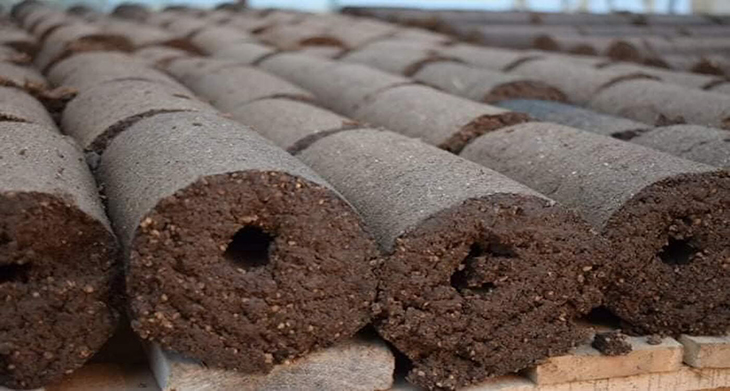

In the heart of North Africa, where olive cultivation has thrived for millennia, one entrepreneur is transforming agricultural waste into an eco-friendly energy source.
Yassine Khelifi, an engineer from Tunisia, has found a practical, sustainable use for the mountains of byproduct generated by the nation’s thriving olive oil industry. His work has not only created a new market for renewable energy but also offered solutions to deforestation and carbon emissions in a region where agricultural traditions run deep.
Tunisia, nestled between Libya and Algeria, may be modest in size, but it boasts an agricultural sector that punches far above its weight. Olive cultivation is not only a cornerstone of the country’s economy but also a cultural tradition dating back to Roman times. Today, Tunisia ranks as the third-largest olive oil producer in the world and the second-largest exporter of dates, with much of its rural economy built around agriculture.
Yet, with prosperity in olive oil production comes a significant environmental challenge. The process of extracting oil from olives leaves behind a substantial byproduct known as “pomace”—a dense, fibrous material that historically was used in rural homes as fuel or animal feed.
In modern times, however, the scale of production has far surpassed local demand for such uses. Tunisia’s olive oil industry now generates around 600,000 tons of olive waste every year, creating a growing issue of agricultural waste management.
For Yassine Khelifi, this problem became an opportunity. “I always wondered how this material could burn for so long without going out,” Khelifi recalled. “That’s when I asked myself: ‘Why not turn it into energy?’”
His curiosity was fueled by both environmental concerns and the potential to create a profitable, sustainable business. Realizing the need for specialized equipment to process olive pomace into usable fuel, Khelifi embarked on a fact-finding mission to Europe in 2018. There, he sought out machinery capable of converting the thick, oily byproduct into efficient fuel briquets.
As explained by France24, Khelifi’s journey was not without its obstacles. The initial challenge lay in locating the right equipment and transporting it back to Tunisia. Then came the task of adapting and fine-tuning the technology to work with the specific properties of Tunisian olive pomace. It took three years of tinkering and experimenting before he finally succeeded in producing briquets with a moisture content of just 8%, making them an efficient and practical alternative to traditional firewood.
At his factory in northern Tunisia, Khelifi employs a team of 10 workers. Truckloads of olive waste are delivered, spread out to dry in the sun, and then processed through his machine. The result is long, hollow rolls of compressed olive waste that are cut into sections, packaged, and distributed under his brand, Bioheat.
One of the advantages of these briquets is that they require much less drying time than traditional firewood. Seasoned wood must typically be left to dry for over a year, while olive pomace can be ready for use in just half that time. The benefits go beyond convenience and efficiency. By turning waste into fuel, Khelifi’s initiative contributes to reducing deforestation, lowering greenhouse gas emissions, and offering a cleaner-burning alternative to wood.
Local businesses are already seeing the value in this innovation. A pizza shop owner in Tunis, for example, made the switch to Khelifi’s briquets to address complaints about smoke from his wood-fired oven. Not only did it improve air quality for nearby residents, but it also added a unique culinary twist. He explained that the waste “carries the soul of Tunisian olives and gives the pizza a special flavor,” a sentiment shared by his customers.
Today, about 60% of Bioheat’s production is exported, primarily to Europe, where demand for renewable and carbon-neutral fuel sources is growing. Khelifi’s immediate goal is to ramp up production to 600 tons of briquets annually. If achieved, this would represent the use of approximately 1% of Tunisia’s total olive waste, a remarkable accomplishment for a single factory.
This may seem like a modest figure at first glance, but anyone who has traveled through northern Tunisia, the eastern coastline, or the island of Djerba will understand the immense scale of the nation’s olive industry. The fields stretch for miles, with ancient groves and modern farms alike contributing to the country’s global olive oil exports—and, by extension, its growing stockpile of agricultural waste.
Khelifi’s story is an inspiring example of how traditional industries can adapt to modern environmental challenges through innovation and entrepreneurship. By finding value in what was once discarded, he’s helping to reshape Tunisia’s agro-economy, offering cleaner energy solutions and new job opportunities, all while addressing pressing ecological concerns.
What began as a simple question—“Why not turn it into energy?”—has blossomed into a business that not only generates profit but also contributes to a cleaner, more sustainable future for Tunisia and beyond.
What are your thoughts? Please comment below and share this news!
True Activist / Report a typo







